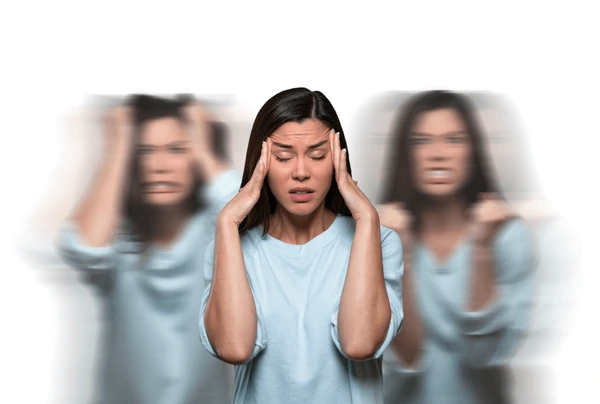Today, I had a chat with a patient dealing with a lot of unwanted emotional thoughts, stress, trauma, bullying from colleagues, job stress and a lot of worries. I asked him, “What’s your go-to when things get tough?” He said he talks to his spouse and friends, which significantly helps him. It’s great when you have a support system or even a therapist to talk to and get the pressure off your chest. Then, for a moment, I thought of myself. I do not talk to anyone about what’s going on inside me and keep things to myself. I believe in the power of my mind to sort things out. Everyone has their own way of handling emotions. Some express them; some stay silent. Mine, by nature, is being silent and finding healing within. Managing our emotions can often feel like navigating a rollercoaster ride in today’s fast-paced world. From the highs of joy and excitement to the lows of stress and anxiety, our emotional well-being plays a crucial role in shaping our overall health and happiness. In Ayurveda, a profound understanding of the mind-body connection exists, offering holistic approaches to harmonizing our emotional states. In this blog, let’s explore some valuable tips and techniques from an Ayurvedic perspective on balancing emotions and cultivating inner peace. Understanding Emotional Imbalances According to Ayurveda, our emotional state is deeply intertwined with our Dosha constitution—Vata, Pitta, and Kapha. Imbalances in these Doshas can manifest as specific emotional tendencies, such as anxiety and fear for Vata, anger and irritability for Pitta, and attachment and lethargy for Kapha. Recognizing these patterns within ourselves allows us to address underlying imbalances and restore harmony. Nurturing Self-awareness The first step towards emotional balance is cultivating self-awareness. Take time each day for self-reflection, journaling or meditation to observe your thoughts, feelings and reactions without judgment. By developing this mindful awareness, you can gain insight into your emotional triggers and tendencies, empowering you to respond more skillfully to challenging situations. Harnessing the Power of Breath and Meditation In Ayurveda, meditation is revered as a potent tool for calming the mind and, consequently, balancing the doshas. Practice breathing exercises like deep belly breathing or Pranayama techniques, such as Nadi Shodhana (alternate nostril breathing) to soothe the nervous system, reduce stress and promote mental clarity. Incorporating breathwork into your daily routine can help you stay grounded and centered amidst life’s ups and downs. Cultivating Emotional Resilience Building emotional resilience is essential for gracefully navigating life’s inevitable challenges and equanimity. Engage in activities that nourish your spirit and uplift your mood, whether in nature, practicing yoga or connecting with loved ones. Cultivate a support network of friends, family or a trusted therapist whom you can turn to during times of need. Balancing with Ayurvedic Lifestyle Practices Incorporating Ayurvedic lifestyle practices into your daily routine can promote emotional balance from within. Follow a Dosha-balancing diet emphasizing whole, seasonal foods tailored to your unique Prakriti. Establish regular eating, sleeping and self-care routines to align with your body’s natural rhythms. Embracing Mindful Movement Physical activity is beneficial for the body, mind, and emotions. Engage in mindful movement practices such as yoga, Tai Chi, or Qigong to cultivate inner peace, balance, and harmony. These gentle exercises help release tension, improve circulation, and enhance the flow of prana (life force energy) throughout the body. Seeking Guidance from Ayurvedic Practitioners For personalized guidance on balancing emotions with Ayurveda, consult an experienced Ayurvedic doctor. They can assess your dosha constitution, identify imbalances, and recommend tailored lifestyle modifications, herbal remedies, and treatments to support your emotional well-being. Effect of Expressing Emotions like Anger and Sadness Let us explore what Ayurveda says about expressing emotions like anger and sadness. Anger Now, coming to the emotions, let’s understand the anger. According to modern science, anger is an emotion that needs to be expressed. However, explicitly expressing anger for long periods will do more harm than good, according to Ayurveda. Emotions like anger, grief, etc., fall under “Dharaniya Vegas.” This means these are emotions that need not be explicitly expressed for long periods. According to Ayurveda, excess Pitta Dosha in the body causes anger. A Dosha imbalance, consequently, may result in exhibiting impulsive and, furthermore, hot-headed behavior. Pitta-type emotions, such as wrath, are said to “heat up the blood, liver, and heart, creating internal fire” in Ayurveda. Have you seen yogis who meditate for long hours and have complete control over their minds? Have you ever noticed them showing anger? No. According to Ayurveda, expressing anger is a Rajasik quality, and not expressing anger is a Satvik quality. Sadness You may feel like crying. That’s ok. Cry it out. But crying for a long time or keeping that grief lingering in you for more extended periods can harm your whole internal environment and topple off your state of emotional and physical balance. In Ayurveda, grief is viewed as a manifestation of Pitta Dosha imbalance. Pitta, governing metabolism, digestion, and transformation, can result in strong emotions such as anger, frustration, and grief when it’s out of balance. Individuals with a predominant Pitta constitution are particularly susceptible to experiencing grief, particularly in times of loss or separation. All good things need some work, so do your emotions. You cannot change the people around you or the circumstances; however, you can change how you respond to them. But you can change yourself. And the best thing is, when you work on yourself, you will see the whole world changing. And the best way to work on your emotions is through Ayurveda – the system of medicine that gives equal importance to the physical and emotional health of an individual. Also read: Depression : Five physical symptoms If you are struggling with any health issues, you… Continue reading Emotional Imbalances With Ayurveda
Emotional Imbalances With Ayurveda



